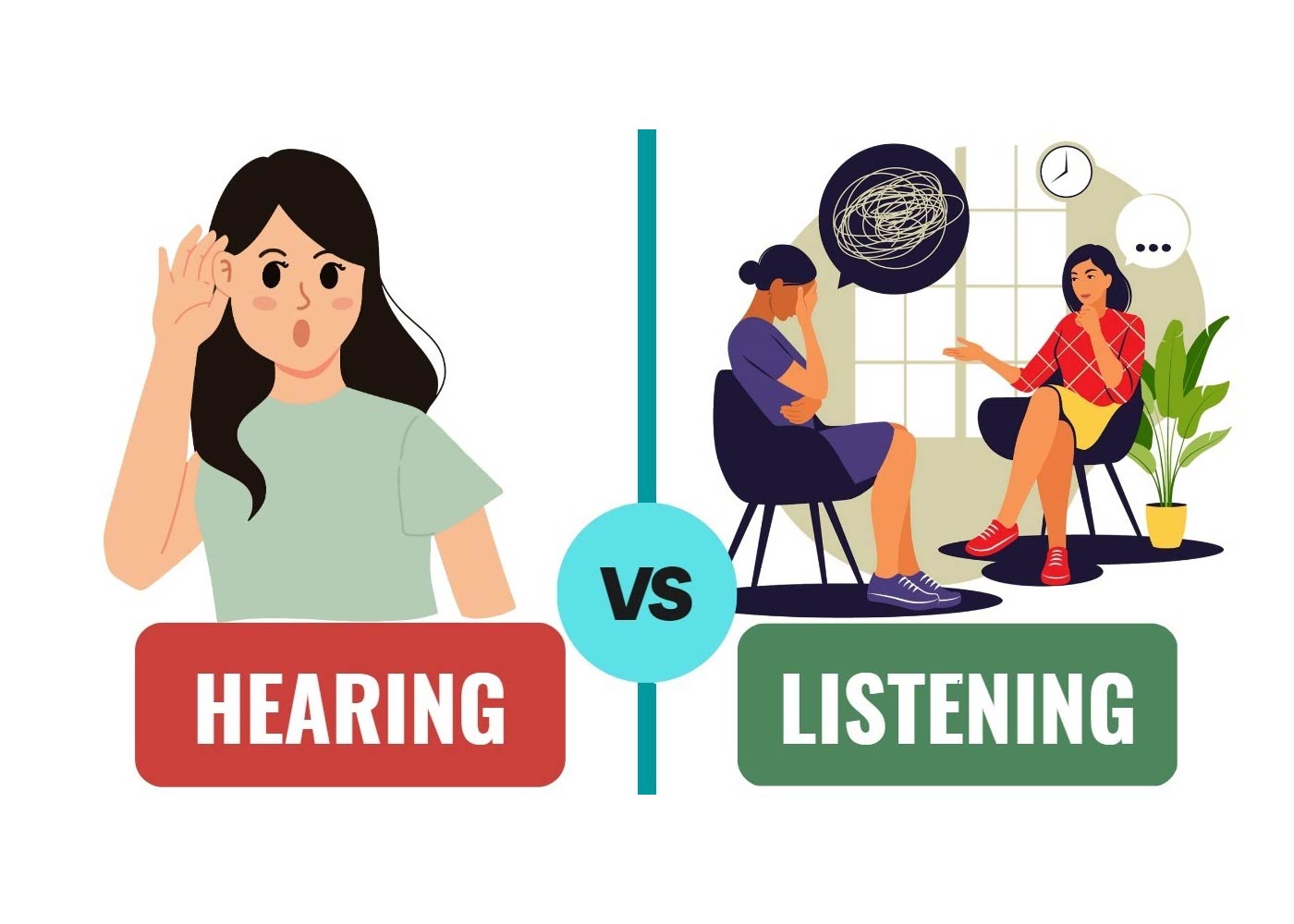Eating disorders are complex illnesses that affect millions
of people globally. While the physical consequences are often highlighted, the
day-to-day impacts frequently go unnoticed. Understanding how these disorders
infiltrate daily life can provide a deeper comprehension of their severity and
the necessity for compassionate support and effective treatment.
Eating disorders encompass a range of psychological
conditions that lead to unhealthy eating habits. These disorders often stem
from an individual's preoccupation with food, body weight, and shape. Examples
include anorexia nervosa, bulimia nervosa, and binge-eating disorder. Each has
its unique symptoms, but they all share a common thread of significantly
affecting daily living.
Psychological Toll
The psychological toll of eating disorders is profound.
Anxiety, depression, and obsessive-compulsive behaviors often accompany these
conditions. Individuals may experience intense anxiety around meal times, which
can lead to avoidance behaviors. This emotional distress can make it
challenging to concentrate on everyday tasks, affecting performance at work or school.
Additionally, the constant mental battle over food choices
and body image can lead to chronic stress. This is not just about occasional
worries but a relentless cycle of negative thoughts that dominate the mind. It
becomes difficult to enjoy social activities, leading to isolation and further
mental health decline.
Physical Health Consequences
Physical health is often the most visibly affected aspect of
eating disorders. Malnutrition can lead to a weakened immune system, making
individuals more susceptible to illnesses. Additionally, the restrictive eating
patterns seen in anorexia nervosa can result in severe weight loss, fatigue,
and even organ failure.
Bulimia nervosa, characterized by cycles of bingeing and
purging, puts immense strain on the body. Frequent vomiting can cause
electrolyte imbalances, leading to heart complications. The excessive use of
laxatives can also harm the digestive system, causing long-term damage.
Social Implications
Eating disorders profoundly impact social interactions. The
fear of eating in public or the need to hide eating behaviors can lead to
social withdrawal. Friends and family may struggle to understand the
individual's behavior, causing strained relationships.
The stigma surrounding eating disorders can exacerbate this
problem. Misunderstandings and misconceptions about these illnesses can lead to
judgmental attitudes, making it even harder for individuals to seek support.
Social isolation becomes a vicious cycle, where the disorder fuels loneliness,
and loneliness intensifies the disorder.
Academic and Professional Challenges
The effects of eating disorders extend to academic and
professional settings. Concentration and focus are often compromised due to
constant preoccupation with food and body image. This distraction can lead to
poor academic performance, missed deadlines, and decreased productivity.
In the workplace, the physical and psychological symptoms
can result in frequent absences. Chronic fatigue and illness might make it
difficult to maintain a consistent work schedule. This not only affects the
individual's career progression but also their financial stability, creating
additional stress.
Impact on Daily Routines
Eating disorders disrupt daily routines in numerous ways.
Meal planning and preparation become an overwhelming task, filled with anxiety
and fear. Grocery shopping can trigger panic attacks, as individuals struggle
to choose foods that align with their distorted self-image.
Daily exercise can also become an obsession, with
individuals feeling compelled to burn off every calorie consumed. This
unhealthy relationship with physical activity can lead to over-exercising,
resulting in injuries and further health complications.
Emotional Strain on Loved Ones
Family and friends of individuals with eating disorders
often experience significant emotional strain. Watching a loved one suffer can
lead to feelings of helplessness and frustration. They may struggle to provide
support without enabling the disorder, leading to tension and conflict within
relationships.
Additionally, the secrecy and deception that often accompany
eating disorders can erode trust. Loved ones may feel betrayed or confused by
the individual's behavior, further straining the relationship. This emotional
turmoil can create a challenging environment for both the individual and their
support network.
Financial Burden
The financial burden of eating disorders is another
significant aspect. Treatment options, including therapy, nutritional
counseling, and medical care, can be expensive. Insurance coverage may be
limited, adding to the financial stress.
Furthermore, the indirect costs, such as missed workdays and
reduced productivity, can compound the financial impact. For many families, the
economic strain can be overwhelming, making it difficult to prioritize
treatment and recovery.
Long-term Health Risks
The long-term health risks associated with eating disorders
are severe. Chronic malnutrition can result in lifelong complications,
including osteoporosis, dental problems, and cardiovascular issues. The damage
to internal organs, particularly the heart and kidneys, can have lasting
effects.
Mental health is also at risk, with eating disorders
significantly increasing the likelihood of developing other psychiatric
conditions. Early intervention and comprehensive treatment are crucial to
mitigate these long-term health risks and promote recovery.
Role of Support Systems
Support systems play a vital role in the recovery process.
Family, friends, and healthcare providers need to offer consistent
encouragement and understanding. Creating a supportive environment can help
individuals feel safe and motivated to seek treatment.
Support groups and therapy sessions provide a platform for
individuals to share their experiences and gain insights from others facing
similar challenges. These connections can reduce feelings of isolation and
provide a sense of community, which is essential for recovery.
Importance of Early Intervention
Early intervention is critical in addressing eating
disorders. Recognizing the signs and seeking help promptly can prevent the
condition from worsening. Healthcare professionals can provide the necessary guidance
and support to develop a comprehensive treatment plan.
Educational initiatives aimed at raising awareness about
eating disorders can also contribute to early intervention. By understanding
the risk factors and symptoms, individuals and their families can take
proactive steps to address the issue before it escalates.
Encouraging a Healthy Relationship with Food
Promoting a healthy relationship with food is essential for
preventing and treating eating disorders. This involves fostering a balanced
approach to nutrition and physical activity. Encouraging mindful eating and
body positivity can help individuals develop a healthier self-image.
Educational programs in schools and communities can play a
significant role in promoting healthy eating habits. Providing resources and
support for individuals struggling with their relationship with food is crucial
for long-term recovery.
Final Thoughts
Eating disorders have far-reaching impacts that extend
beyond physical health. The psychological, social, and financial consequences
can be devastating, affecting every aspect of daily life. Understanding these
impacts is essential for providing effective support and treatment.
By raising awareness and promoting early intervention, we
can help individuals with eating disorders lead healthier, more fulfilling
lives. Support systems, comprehensive treatment plans, and educational
initiatives are key components in addressing this complex issue.
For those seeking further guidance and support, consider
reaching out to professionals who specialize in eating disorders, such as Center for Change.
Their expertise can provide valuable insights and resources to aid in the
recovery process.
If you wish to contribute to our blog, please email us on morhadotsan@gmail.com.























